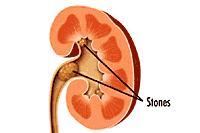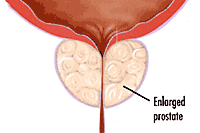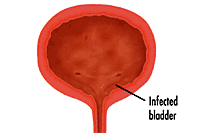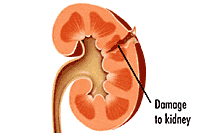 |
 |
 |
Stones
are collections of crystals that form in the urine.
Stones may be found anywhere in the urinary tract,
particularly in the kidneys and bladder. Stones
in the urinary tract almost always cause bleeding
and can sometimes cause severe pain.
|
Benign prostatic hyperplasia (BPH) is an enlargement
of the prostate gland that can happen as men
age.
In addition to bleeding, BPH may cause problems
with urination and occasionally pain. |
A urinary tract infection (UTI), caused by bacteria,
can lead to inflammation in the bladder and urethra
as well as bleeding. UTIs are often accompanied
by burning, fever, pain, and the frequent need
to urinate. |
 |
 |
Other
causes:
Other causes of bleeding
in the urinary tract include:
-
Prostatitis (infection
of the prostate gland)
- Anticoagulant
medications
- Blockage
of the urinary tract
- Sickle
cell anemia
Occasionally, no cause
can be identified, a condition
known as idiopathic hematuria. |
|
|
|
|
| Damage to the urinary tract may cause bleeding.
Damage may be due to a blow or accident or use
of a catheter. Very strenuous exercise may sometimes
irritate the urinary tract and cause bleeding. |
Cancer may occur anywhere in the urinary tract.
A tumor in the urinary tract may sometimes cause
no symptoms other than bleeding. |



